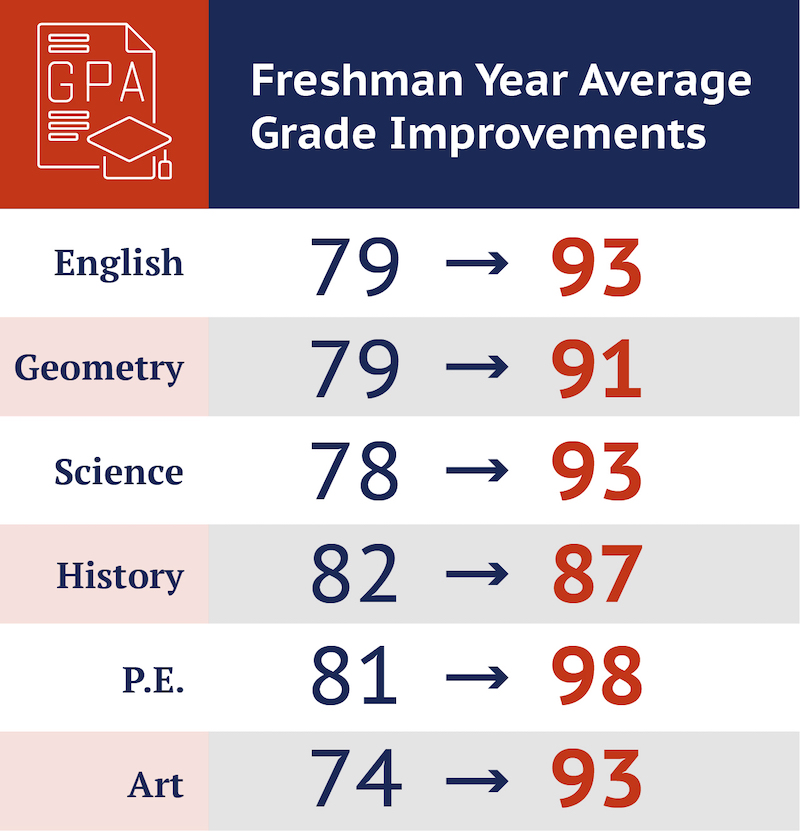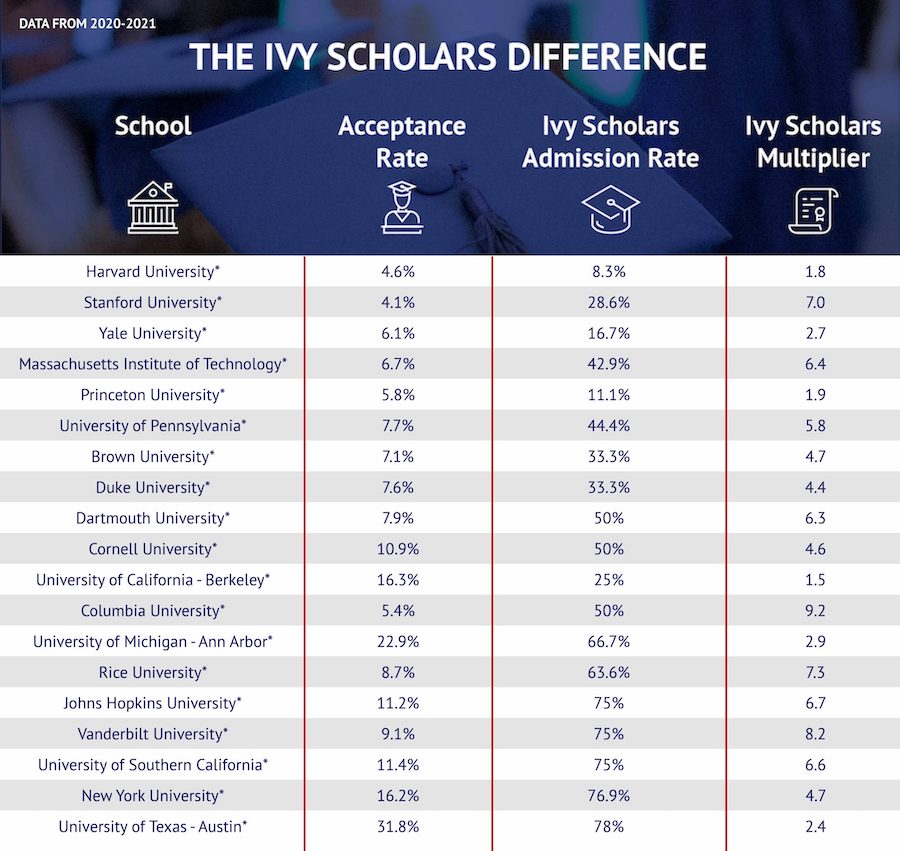
Too many high school students study past midnight to cram for tests, barely able to balance their extracurriculars, homework, and other commitments. Too many parents struggle to help their children keep their studies on track.
Our Academic Coaching service for high school students teaches time management and scheduling skills so they can live up to their intellectual potential. Calendaring out assignments helps to provide order and structure in a teen’s life, and we employ the empathy and patience that teenagers need to teach the organization and precision that parents dream of.
Working with an academic coach boosts students’ in-class performance. Students develop efficient study habits and plan their homework, giving them increased returns on their effort. Efficient studying means getting better grades with less stress, leaving more time for family and fun.
Academic coaching also improves a student’s relationship with their parents! Using your limited family time to pester your child to complete their assignments sours relationships. Parents support their children’s education best when they can approach from a positive angle – not as harsh taskmasters or inquisitive nags. Delegating these tasks to an academic coach lets you enjoy time with your child, secure that we’re helping them build the executive functioning skills they need to be successful adults.
So, how does this work?
Our academic coaches begin by getting to deeply understand your student. We look to parents to give us background information and context for their child’s struggles, then look to the student to understand their day-to-day challenges.
Our first meeting is a parent-coach meeting. We take a thorough developmental history, then listen to your assessment of their intellectual and emotional strengths, weaknesses, goals, and concerns. We methodically build our understanding of each student’s mindset and motivation, so we can give them the coaching they need.
Our next meeting is a student-coach meeting. We review the issues your student wants to focus on, how their school assigns homework, what grading system the school uses, and the peculiarities which arise from each specific school and class. This includes an understanding of each school’s particular online portal, and how assignments are tracked, collected, and graded. This level of knowledge is necessary for us to know how to approach mentoring your student.
Studying these details allows us to track exactly what your student needs to do and when, as well as analyze how much each individual assignment matters to their overall grade. This allows us to calibrate and focus our efforts when we begin the check-ins.
Once we understand a student’s schedule and struggles, we’ll get involved in the day-to-day minutiae of helping them manage their schedule. We start with 2-3 hour-long lessons to explore which time management strategies work best for them, then decide on an approach and set up frequent, brief, check-ins. Check-ins happen up to 2 times per day, up to 4 times a week and generally last 10 minutes.
Check-ins hold students accountable. We break down each day’s homework and other responsibilities into concrete tasks, set expectations for how long each task should take, and set up an evening check-in to ensure work gets done as agreed. When students find their actions don’t meet with the expectations we’ve set, we help them navigate the complications they face. As a neutral party holding students accountable, we balance between setting expectations for responsibility and providing empathic, growth-oriented support. By supervising a student’s time management, we impart good habits, and create a framework for success in school and beyond.
Reinforcing these traits is our long-term goal. We teach students to be proactive when reaching out to their peers and teachers, to have the confidence to admit when they need help, and to take responsibility for reaching their goals. By bolstering students’ confidence, and giving them new communications skills and strategies, we ensure they are able to find the support they need.
Alongside time management, proactivity is the most important skill we impart to our students. This proactivity gives them the ability and willingness to take control of their own academic lives and to reach out to teachers and peers, and the confidence to admit when they need help.
Students may know a test is coming, but may not know exactly what it will cover, or have trepidation approaching a teacher for help outside of class. Our coaches work with students to bolster their confidence, and teach them when and how they should reach out. There are many people who are eager to help students succeed – your student just has to learn how to take that first step.
Our goal is to empower students to succeed on their own by teaching them high quality habits. As students build their skills and confidence, we slowly reduce the frequency and duration of check-ins, allowing them to get used to excelling on their own.
Students are often smart enough to excel in their courses, but lack the tools to structure their study habits and meet critical deadlines. Academic coaching provides this structure, and helps raise struggling students back to the levels of academic achievement we know they’re capable of. On average, students we work with see their academics improve by a full letter grade, or 10 percentage points.
Academic coaching services are the best way to enable your child to succeed, because it gives them the tools to make the best use of their natural abilities. By focusing on process, we achieve more comprehensive and lasting results than tutoring which tackles a single subject at a time. We believe all students can excel giving the proper support, and we greatly enjoy helping them grow.
Schedule a free consultation now to see if we can help your student!



Ivy Scholars is the leading educational consultant in Sugar Land, Texas, providing admissions coaching, test prep, and more to help students enroll at top tier schools.

Call us now: +1 (281) 215-5148
.
Get expert tips, admissions updates, and resources delivered straight to your inbox.


